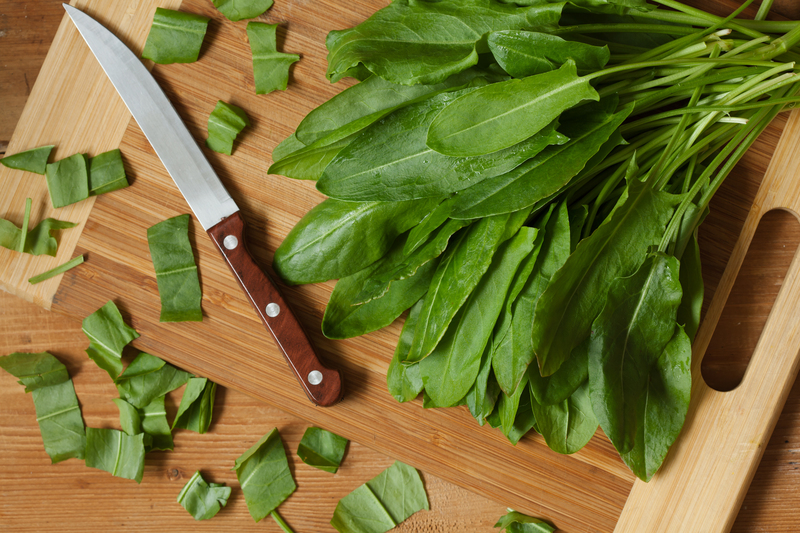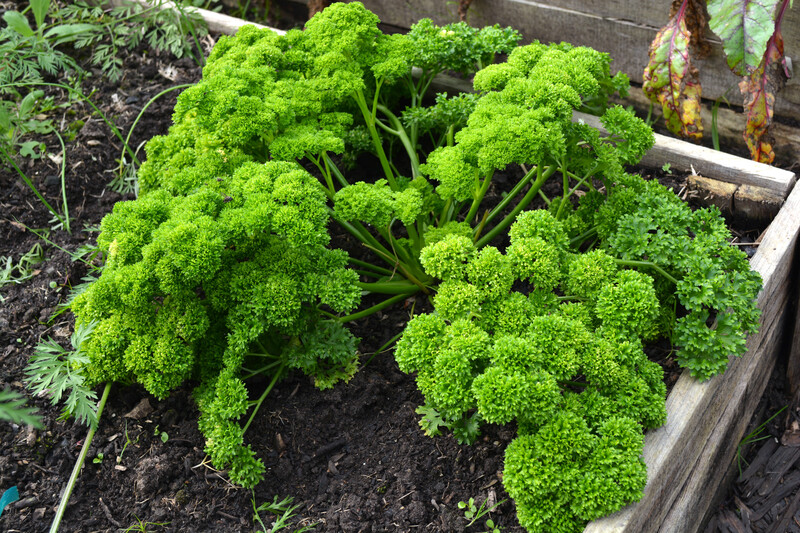Discover 9 Fundamental Tips for Newbie Gardeners
Posted on 05/06/2025
Discover 9 Fundamental Tips for Newbie Gardeners
Ready to start your gardening journey? Embarking on a gardening adventure is one of the most rewarding activities you can enjoy at home. Whether you have a sprawling backyard or a cozy balcony, this comprehensive guide will reveal 9 Fundamental Tips for Newbie Gardeners to help you grow healthy plants, vegetables, or flowers with confidence. From soil preparation to understanding sunlight needs, these beginner gardening tips will set you up for success every step of the way.

Why Every Beginner Gardener Should Learn These Tips
Gardening may seem simple, but cultivating a thriving garden requires some essential knowledge, planning, and ongoing care. Armed with the right information, new gardeners will avoid common mistakes, save money, and enjoy lush, blooming plants throughout the seasons. Let's unearth the secrets to successful gardening!
1. Start Small and Choose the Right Location
One of the most important novice gardening tips is to start modestly. It's tempting to transform your entire yard or balcony into an oasis all at once, but it's much better to begin with a manageable plot or a few containers. This approach lets you:
- Learn essential gardening skills faster.
- Avoid feeling overwhelmed by maintenance.
- Adapt plans easily as you learn what works best in your space.
When selecting the right spot, observe how much sunlight your chosen area receives, and consider factors such as proximity to a water source and protection from strong winds. Most vegetables, herbs, and flowers thrive in a location with at least six hours of direct sun per day.
How to Find the Perfect Spot for Your Garden
- Track sunlight: Watch how sunlight moves across your space throughout the day to ensure your garden will receive adequate light.
- Accessibility matters: Place your garden where you can easily water, weed, and harvest without difficulty.
- Drainage is key: Avoid low-lying spots where water can accumulate and cause root rot.
2. Understand Your Soil Type
Your soil is the foundation of a healthy garden. Not all soils are the same--knowing your soil's characteristics helps you select the right plants and treatments. Basic soil types include:
- Clay soil: Sticky and heavy, holds nutrients but may drain slowly.
- Sandy soil: Drains quickly, often low in nutrients.
- Loamy soil: The gardener's favorite--well-balanced drainage and nutrients.
Test your soil by picking up a handful and dampening it. If it forms a ball that breaks apart easily, you likely have loamy soil. Most garden centers offer simple soil testing kits that analyze pH, nitrogen, and other vital elements. Amending your soil with compost can dramatically improve its structure and fertility.
Quick Soil Improvement Tips for Beginners
- Add organic matter: Mix in compost, aged manure, or peat moss to enrich your soil.
- Mulch regularly: Spread organic mulch to lock in moisture and suppress weeds.
- Rotate plantings: Change plant locations each year to avoid nutrient depletion and soil disease.
3. Pick Easy-to-Grow Plants
Not all plants require the same levels of care. As a new gardener, focus on varieties that are forgiving and robust. This helps you gain confidence while ensuring your efforts are rewarded with lush growth. Consider these beginner-friendly options:
- Sunflowers
- Zinnias
- Marigolds
- Lettuce and greens
- Radishes
- Tomatoes (bush varieties)
- Herbs like basil, chives, and mint
Research Before You Plant
Read plant tags or seed packets carefully so you can provide the right conditions (light, water, and spacing). Don't be afraid to ask advice at your local nursery or gardening club--they're usually happy to support garden beginners!
4. Learn the Basics of Watering
Watering is fundamental, yet overwatering is one of the most common new gardener mistakes. Too much moisture can suffocate roots and invite diseases, while too little leaves plants stressed and wilting. Some golden rules for watering your garden:
- Water early in the morning to minimize evaporation and fungal diseases.
- Soak the soil, not the leaves--this encourages roots to grow deeply.
- Use mulch to retain soil moisture and reduce weeds.
- Check soil moisture by inserting your finger into the soil an inch deep. If it's dry, it's time to water.
Irrigation Tips for New Gardeners
If your garden is large, consider investing in soaker hoses or drip irrigation for efficient, consistent watering--a valuable practice for both vegetable gardening and ornamental beds.
5. Feed Your Plants for Optimal Growth
Just as we need nutrients to thrive, so do our plants. Fertilizing keeps your garden productive, but more is not always better! Fertilizing tips for beginner gardeners:
- Follow label instructions: Whether using organic compost or synthetic fertilizers, stick to recommended doses.
- Feed at the right time: Most plants benefit from feeding as they begin new growth in the spring--avoid fertilizing during dormancy or in peak heat.
- Use slow-release fertilizers: These provide nutrients steadily over time and reduce the risk of burning plants.
If you prefer an organic approach, compost and compost tea are excellent, natural ways to enhance soil fertility and are safe for all plants.
6. Master Mulching Techniques
Mulching is a must for every modern garden, especially for beginners. A 2-3 inch layer of mulch over your soil can revolutionize your gardening by:
- Retaining moisture: Mulch drastically reduces evaporation, letting you water less.
- Preventing weeds: It shades out weed seeds before they can sprout.
- Regulating soil temperature: Mulch keeps roots cooler in summer and warmer in winter.
- Improving soil quality: Organic mulch breaks down, adding nutrients to the soil.
Great mulching materials include straw, shredded bark, compost, or grass clippings--avoid using black plastic or stones, which can overheat the soil and inhibit water penetration.
7. Be Mindful of Garden Pests and Diseases
Nothing is more discouraging than having your plants attacked by pests or fungus. However, most garden problems can be managed with early detection and natural remedies. As a first-time gardener:
- Monitor regularly: Check undersides of leaves and stems for signs of pests or disease.
- Encourage beneficial insects: Ladybugs, lacewings, and bees help control pests and pollinate your plants.
- Practice companion planting: Certain plant combinations, like basil and tomato or marigolds with vegetables, can deter insects naturally.
- Keep leaves dry: Water at the base of plants to help prevent fungal diseases.
When to Seek Help
If an infestation is severe or you're unsure of the problem, consult your local cooperative extension office or a reputable gardening center for advice. Remember--healthy, well-tended plants are naturally more resistant to threats!
8. Practice Regular Pruning and Maintenance
Pruning and ongoing garden care are vital parts of successful gardening for beginners and experts alike. Removing dead or damaged leaves, spent flowers, and overcrowded branches helps your garden look tidy and directs the plant's energy to healthy growth and blooming.
- Pinch deadheads: Removing spent blooms encourages more flowers to form on annuals and perennials.
- Thin seedlings: Young plants need space to thrive--snip out weaker seedlings after sprouting.
- Watch for aggressive spread: Some herbs and flowers can take over; prune or divide as needed.
Gardening Tools for Success
Invest in quality, comfortable gardening tools. Basics for every beginner gardener include pruners, a trowel, a good pair of gloves, and a watering can or hose. Care for your tools by cleaning and storing them properly--well-maintained equipment lasts for seasons!
9. Keep a Garden Journal and Keep Learning
Every garden--and every season--is a learning experience. Recording your plantings, successes, and even failures in a dedicated garden journal helps you track your progress and make improvements year after year. You'll quickly notice patterns in sunlight, weather, pests, and plant performance, making you a much more effective gardener.
Never Stop Growing Your Knowledge
- Read gardening books and blogs: Your local library and the internet are great resources for tips tailored to your climate and soil.
- Join local gardening clubs: Engage with other enthusiasts who can offer advice, plants, and friendship.
- Experiment with new crops or flowers each year: Broadening your plant palette keeps gardening exciting and educational.

Bonus Tips: The Mindful Gardener's Approach
Gardening is more than planting and harvesting--it's about patience, observation, and enjoying the journey. Don't be discouraged by setbacks. Every gardener, no matter how experienced, faces challenges. The key is to start, observe, and keep nurturing your love for the soil.
Summary Table: 9 Essential Tips for Beginner Gardeners
| Tip | Quick Advice |
|---|---|
| Start Small & Right Location | Choose a manageable area with 6+ hours of sunlight. |
| Understand Your Soil | Test soil and amend with compost for improvement. |
| Pick Easy Plants | Grow sunflowers, tomatoes, and herbs for early success. |
| Water Wisely | Water deeply, in the morning, and check moisture regularly. |
| Feed for Growth | Use compost or slow-release fertilizers as per instructions. |
| Master Mulching | Apply 2-3 inches of organic mulch to retain moisture. |
| Manage Pests & Disease | Inspect plants and use natural methods for control. |
| Prune & Maintain | Remove dead or overcrowded growth for healthier plants. |
| Keep a Journal | Record what works and keep learning each season. |
Conclusion: Your Garden Awaits
With these 9 essential gardening tips for beginners, you are well on your way to cultivating a thriving indoor or outdoor haven. Remember, gardening is as much about the process as it is about the harvest. Be patient, give your plants consistent care, and savor the small victories--whether it's your first sprouting seedling or a brilliant display of summer blooms. Happy gardening!
If you found this guide useful, share it with fellow aspiring gardeners and let us know your gardening questions or tips in the comments below!



